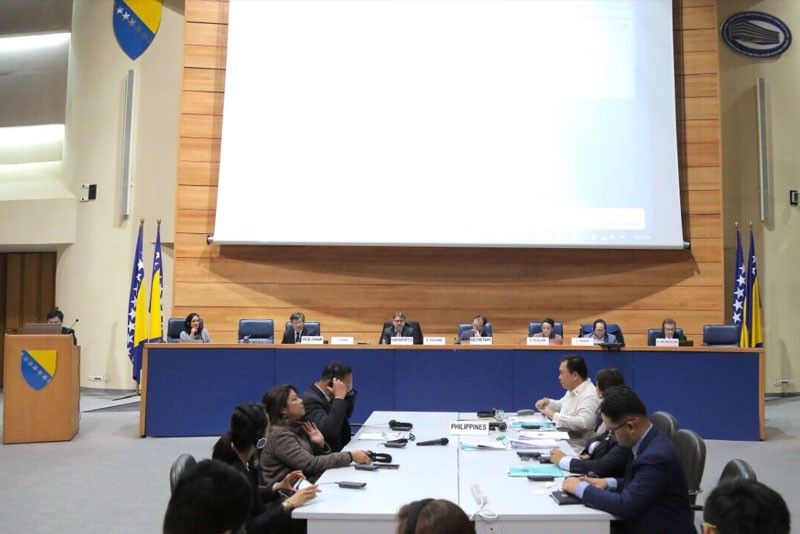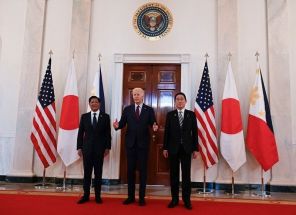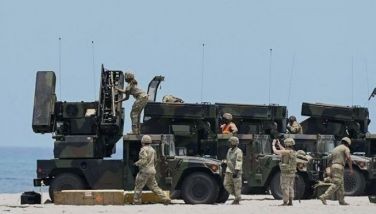Delist enforced disappearances — The Philippines to UN

MANILA, Philippines — The Philippines has asked the United Nations to delist over 600 cases of enforced and involuntary disappearances mainly attributed to government forces between 1975 and 2012.
Senior government officials led by Undersecretary Severo Catura of the Presidential Human Rights Committee formally moved for the delisting of 625 cases during a meeting on Thursday with the UN Working Group on Enforced and Involuntary Disappearances.
The Department of Foreign Affairs (DFA) said the Philippine delegation presented documents showing that the cases are being addressed by the government, including the 105 whose claims were recognized by the Human Rights Victims’ Claims Board (HRVCB) created to recognize and provide reparations to victims of human rights abuses during the martial law regime.
Aside from those recognized by the HRVCB, the Philippines also provided the UN working group with information on the cases where perpetrators had been tried and convicted or acquitted; where the whereabouts or fate of disappeared persons have been reported; and where cases were erroneous duplicates, possibly fictitious or had been closed.
“The process of clarifying these cases with the UN is supported by, and runs parallel to, domestic mechanisms being implemented by the Department of Justice, such as that established by the Anti-Enforced or Involuntary Disappearance Law of 2012 and Administrative Order 35,” the DFA said, referring to a 2012 order creating an interagency committee on extrajudicial killings, enforced disappearances torture and other grave violations.
“Undersecretary Catura emphasized before the working group that these domestic mechanisms involved close cooperation between the government and the victims and their families, non-government organizations and civil society organizations,” it added.
The DFA said the meeting, held in Sarajevo in Bosnia and Herzegovina, established a channel of cooperation and dialogue between Philippine government agencies and the working group as the delisting process moves forward.
It said the working group has welcomed in a previous report the passage of a 2012 law providing preventive mechanisms, remedial measures and protection of victims through restitution, compensation and rehabilitation of victims of enforced disappearances.
During the dialogue, Catura reiterated Manila’s commitment to cooperate with the UN human rights mechanisms.
He also affirmed the policy of the Duterte administration to implement a human approach to development and governance, emphasizing that the Philippines had always welcomed dialogue on the issue of enforced or involuntary disappearances.
“The Philippine delegation likewise assured the working group that the government would continue to assist families of the disappeared,” the DFA said.
“The delegation, at the same time, expressed concern over false information submitted to the working group, including some cases which were not supported by facts and were reported without obtaining the required consent from families of victims,” it added.
At the same time, the Philippines called on UN member-states to adhere to and implement the international convention against transnational organized crime and its protocols relative to crimes committed at sea.
During a recent debate at the UN Security Council, Philippine Deputy Permanent Representative to the UN Christianne Azucena said the full implementation of the UN Convention Against Transnational Organized Crime is crucial in attaining maritime security worldwide.
“My country’s strategic location in Southeast Asia and its more than 36,000 kilometers of coastline make us vulnerable to activities of international crime syndicates including piracy, drug trafficking and human trafficking,” Azucena said.
“Moreover, one in every four seafarers on board an international vessel at any given time is a Filipino… It is therefore vital for my country that threats to maritime security are addressed,” she added.
Azucena said the Philippines is active in promoting maritime security at the international level.
The Philippines last year signed a trilateral cooperative agreement with Indonesia and Malaysia for joint air and sea patrols to reinforce security and accelerate capture of criminal elements.
- Latest
- Trending


























